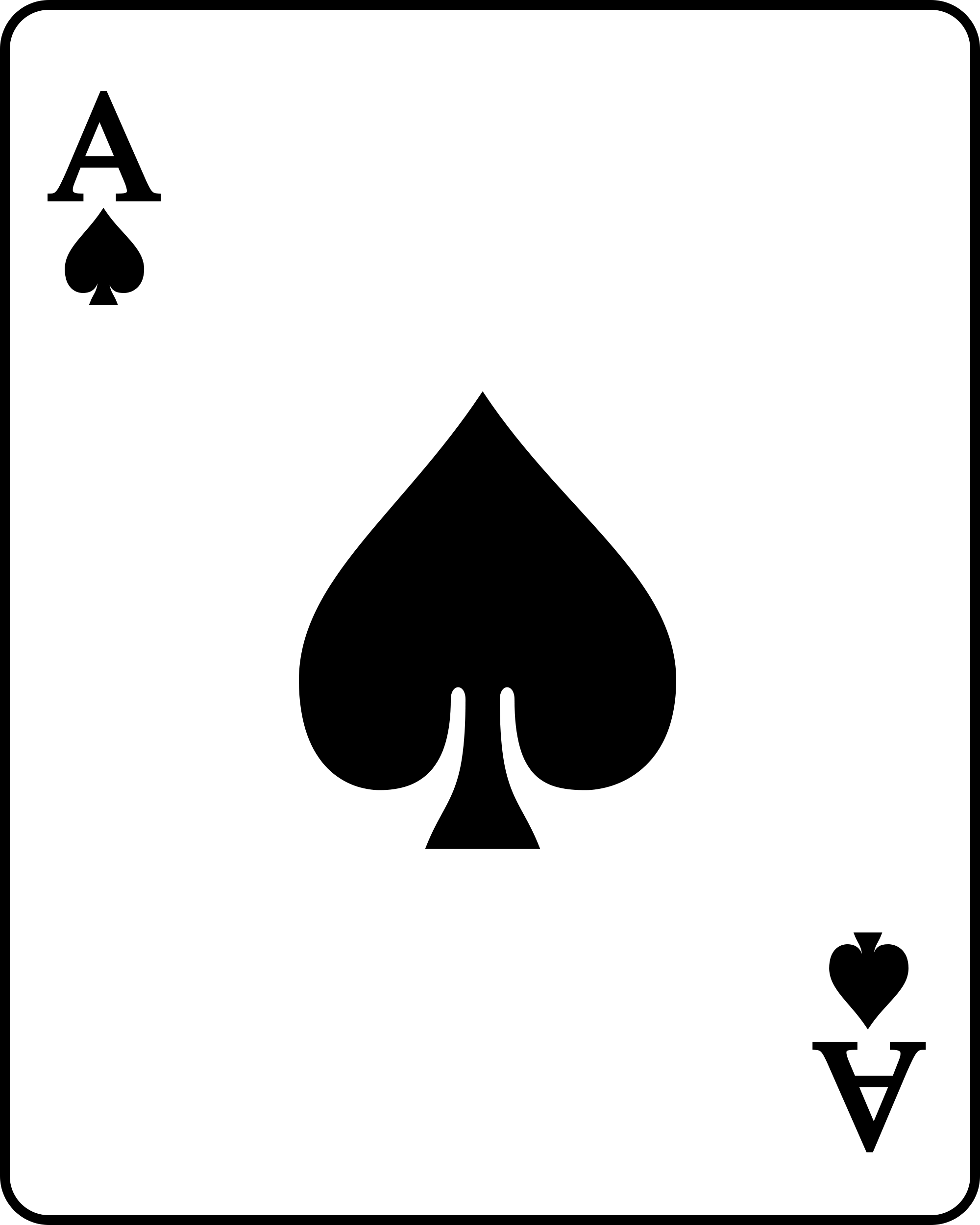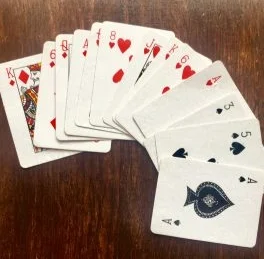Can a simple card game teach you something about your relationships?
During my second module, studying Transactional Analysis at TA Works with Rosemary Napper, I learnt about Strokes. This newly acquired knowledge gave me so much insight into the way we conduct our relationships with others and with ourselves.
So what are ‘Strokes’ exactly?
Eric Berne defined a stroke as a unit of human recognition. The word stroke came about after Rene Spitz observed through a study he conducted that infants reared with a lot of physical stimulation fared better than infants who were deprived of such stimulation. The word ‘stroke’ refers to an infant’s need for physical stimulation. As grown ups we still crave such physical stimulation but we learn to substitute other forms of recognition in place of the physical. Therefore, a stroke can be a smile or a frown, a nod, a look, a hand gesture, a spoken word, a compliment, or a touch. As humans, we desperately seek strokes from others. Berne called this need “Stroke Hunger.” Hence, we do what we do in life in order to be stroked and we learn about ourselves from the strokes that we get.
Types of Strokes
Strokes can be positive, experienced by the person receiving them as pleasant or pleasurable. Strokes can also be negative, experienced as being painful. A stroke can be verbal or non-verbal. A smile is a non-verbal stroke, but saying to someone, “Have a good day” is a verbal stroke.
Strokes can also be unconditional or conditional. Unconditional strokes are those directed at what you are, your being. Conditional strokes are those directed at what you do or accomplish. When you say, “I love you” to your son/daughter you provide him/her with an unconditional stroke. When your child wins a race at the school sports day and you shout,” Well Done!” you are providing him/her with a conditional stroke because you are referring to something they have done or accomplished.
Unconditional strokes are a very rich kind of strokes and children who grow up in an environment where they receive a lot of positive unconditional strokes really thrive. The same is also observed with adults who receive a lot of positive unconditional strokes. On the other hand, negative unconditional strokes are extremely harmful since they convey the message that the recipient is not OK. If a person is subjected repeatedly to such a pattern of strokes early in childhood, he/she can end up with a negative impression of self and can have low self-esteem and self worth.
Conditional positive strokes recognise something we do and can fulfil an important need. It is necessary for parents to give conditional strokes as it helps guide a child to what is acceptable or unacceptable behaviour. However, as the name suggests, they are given on condition. Therefore, if a person feels that in order to get the positive stroke he or she has to do certain things or behave in a certain way or the stroke is withdrawn, then the stroke can become limiting because the relationship becomes more about pleasing the other and, therefore, less spontaneous. For example, a child who only gets recognition for doing well at school might perceive that he/she are only loved by the parents when they do well at school and that the love might be withdrawn if they fail.
The above are all examples of external strokes, those we receive from others. In addition we can have internal strokes, those we experience within ourselves like fantasies, self-talk, self-praise or self-criticism and other forms of self-stimulation.
The ideal scenario is to always receive positive strokes. However in reality that is not the case, and so we are sometimes faced with the choice of receiving negative strokes or no strokes at all. Usually our hunger for strokes means that receiving negative strokes is better than no strokes at all. This links to why children who feel unheard or unseen by parents misbehave in order to get attention, even if it is negative, as any attention is better than no attention at all. It is good to mention here that stroking reinforces the behaviour which is stroked.
Rosemary has an interesting way of representing these different types of strokes by using playing cards.
Positive Unconditional strokes for Being
- The Hearts
Negative Unconditional strokes for Being
- The Clubs
Positive Conditional strokes for Doing
- The Diamonds
Negative Conditional strokes for Doing
- The Spades
Listening to Rosemary explain all that about strokes, got me thinking about all the stages in my life and, hence, I started reflecting on the kind of strokes I received growing up. I also thought about the “here” and “now” and the kind of strokes I give and receive as a partner, a mother, a work colleague, and a friend. I also wondered about the kind of strokes other people close to me have enjoyed or endured in their lifetime, and what was the effect of that experience on their way of relating and communicating. Furthermore coming from and having been raised in different cultural backgrounds I also wondered on the influence of culture on strokes. I realised that, growing up, I received more strokes for doing than being and that hunger that I had for receiving strokes for being made me the kind of person who gives lots of strokes for being. It also had an influence on my good performance at school and being generally “a good girl” because it got me the recognition strokes I craved even though they were conditional rather than unconditional.
Take a moment and think about your childhood. What kind of strokes did you receive growing up? Was it for being, doing, both or none? Then come back to the present and reflect on the kinds of strokes that you give to and receive from those in your circle. What is also of interest here is what kind of strokes do you give yourself? See what you can learn and discover and perhaps even change.
The next thing we did in this module was the following exercise, which I also urge you to do, because it will reveal even more about your relationships. Rosemary asked each one of us to think about a particular person with whom we have regular contact, at work or a personal level, and reflect on the kind of strokes that we give to this person. We were asked to represent this by holding a deck of cards of various suits that best reflected those kinds of strokes in our left hand. Next we were asked to reflect on the kind of strokes that we in turn perceived to receive from that person and again represent this by holding a deck of cards with the various suits that best reflected those strokes in our right hand. Then we took a look at the deck of cards we held in each hand and made comparisons. We discussed our findings in groups of two. So go ahead and think of a person in your life and repeat this exercise. Now take a look at the cards you are holding in each hand and compare them. What do you learn about the way you relate to that person?
We can’t talk about strokes without mentioning the work done by Claude Steiner in this area. Steiner suggests that while we are growing up, our stroking habits are greatly influenced by our parents who pass on the following unwritten rules about the exchange of strokes:
Don’t give strokes you want to give.
Don’t ask for strokes you want.
Don’t accept strokes you want.
Don’t reject strokes you don’t want.
Don’t give yourself strokes.
Steiner refers to these rules as The Stroke Economy. I mentioned the influence of culture earlier on and here my attention is drawn to the last point “Don’t give yourself strokes.”, because I notice that some cultures particularly encourage it and other cultures frown upon it and discourage it.
Gaining knowledge and becoming aware of our habitual patterns of exchanging strokes can be greatly beneficial. For example, developing awareness of why you might find it easy to give strokes for doing but struggle to give strokes for being, or why someone might have a tendency to accept or tolerate negative strokes or why some find it difficult to ask for the strokes they need, can be enlightening. Making sense of all this can be freeing and can enhance the quality of our relationships with others and with the self.
I will end with what Steiner writes in his book, Emotional Literacy:
“One of the most important discoveries I made in 20 years I have been teaching emotional literacy is that by systematically breaking the rules of the Stroke Economy and providing people with a steady diet of positive strokes, people’s hearts will automatically open. They will experience loving feelings they have not before experienced and the effect will spread out from them to their families and friends. I have seen many people (myself among them) develop their loving capacities over time, simply by giving strokes, asking for strokes, accepting the strokes they want, rejecting the ones they don’t want, and giving themselves strokes.”
So take some time to figure out your stroking profile. Use the game cards to help you discover what you can keep or change in order to communicate and relate more effectively with yourself and others.






